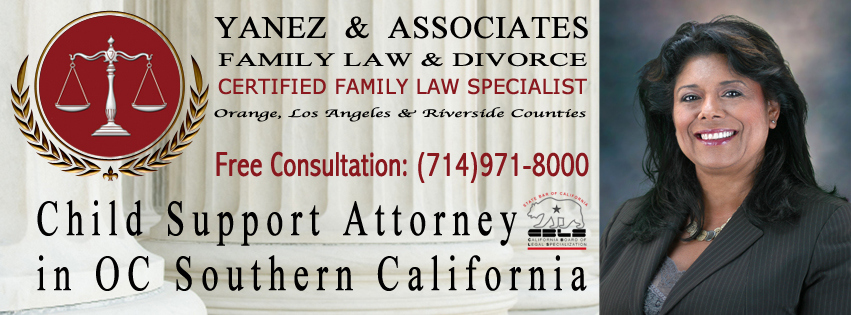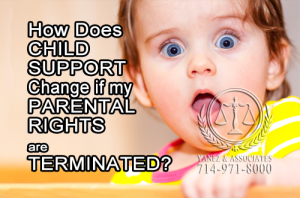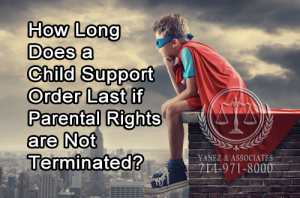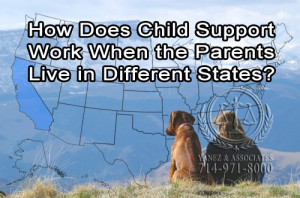Searching for an Orange County Attorney for Child Support in Southern California
Dealing with child support in Southern California, child support can be complicated to determine, but a skilled attorney can help you through the process. The following are questions that you may not think to ask until you are already immersed in a child support case. Do not hesitate to discuss these topics with your family lawyer so you can understand how they apply to your situation.
Who Requires Child Support?
Both federal law and California state law mandate that a child’s parents support their child financially. If the parents are not married to each other, the child’s parentage must be legally determined before a child support order can be issued.
Once a child’s parents have been legally established, either parent can request that the court issues a child support order, or a child support order can be made as part of another family law case, like a divorce, a domestic violence case, or a paternity case.
How Does Child Support Change if my Parental Rights are Terminated?
Usually, child support orders require that a parent pays child support until the child turns 18 or graduates from high school, whichever is later (but there are some exceptions, see below). However, if your parental rights are terminated your child support order may also end if the child is in the care of two other adults, for example, if the child is adopted.
Parental rights can be terminated in several ways in California.
• Juvenile Dependency Court - If it has been found that the child has been abused, neglected, or abandoned, or the parent has a mental or physical incapacity, the Court may remove the child from the parent’s care. In this case, the parent is likely still responsible for child support.
• Adoption in Family Court - If a child’s birth parents voluntarily relinquish their parental rights and the child is adopted by new parents, the birth parents are usually no longer legally responsible for child support.
• Stepparent or Domestic Partner Adoption - When the noncustodial parent either voluntarily terminates their parental rights because the custodial parent has a new spouse or partner who is willing to adopt the child, the noncustodial birth parent is no longer responsible for child support in Southern California, but also no longer has the right to spend time with the child. The custodial parent’s new spouse or partner takes on the responsibility of financially supporting the child.
• Parentage Actions - If the court finds that spending time with either parent is no longer in the best interest of the child, that parent’s parental rights may be terminated. In this case, the parent will likely have to continue paying child support.
• Emancipation - Once a child is at least 14 years old, he or she may petition the court to become emancipated, which means the child is legally an adult. To successfully become emancipated, the child needs written permission from both parents and a court finding that the emancipation is in the best interest of the child. Because the child becomes an adult, he or she no longer needs legal parents, so emancipation legally revokes a parent’s legal rights and responsibilities, including the responsibility to pay child support.
If you were required to pay child support prior to the termination of your parental rights, you will still be required to make all payments that were due or are currently past due, even if your parental rights have been terminated.
How Long Does a Child Support Order Last if Parental Rights are Not Terminated?
A parent is required to pay child support until his or her parental rights are terminated or one of the following occurs.
• The child turns 18 and has graduated from high school;
• The child turns 19;
• The child gets married;
• The child dies;
• The child is emancipated, joins the military, or is otherwise legally free.
The court may choose to require that both parents continue paying child support beyond the point where one of the above occurs if the child is disabled, and as an adult, cannot support him or herself.
How Does Child Support Change if There is More Than One Child?
In California, child support is determined based on the child support guidelines set by the State of California, and can vary slightly based on the county in which you are filing your child support case.
When a child support request is for more than one child, the total amount awarded will be divided equally among the children, unless the court specifies otherwise in the terms of the child support order. Usually if it is divided unequally, it’s due to one child having significant health care or childcare costs that the other child does not have.
How Does Child Support Work When the Parents Live in Different States?
Because a California child support order is meant to be enforced in California and is issued by a state or county judge, it can be difficult for the California court to enforce it in other states. This is why when two parents live in different states; they can use the Uniform Interstate Family Support Act to enforce the child support orders.
When the two parents live in separate states, or even in separate countries, either parent can register the child support order in the county where either or both parents live. Once the order is registered, it can be enforced or modified under the Uniform Interstate Family Support Act.
It is important to remember that not every country will be helpful in enforcing a child support order, so the process may be complicated.
OC Southern California Child Support Attorney
If you have questions about child support in Southern California, your best option is to contact a Southern California child support attorney who can help evaluate your case. Every county in California has a local child support agency that can help answer your questions, and may even initiate a child support or child custody case on behalf of your child. Even if you work with your local child support agency, remember that their attorneys are not your attorneys, and you should always consult your own lawyer for accurate legal advice. Contact the family lawyers at Yanez & Associates today to schedule your free initial consultation.
In Summary, child Support in Southern California can vary from other states, and countries. Therefore, it is important to research the city and state laws regarding divorce, if you wish to file in that county, or country. You are able to find more information by researching the courts website online. If you need more detailed information you may also call the court.
When the judge determines the child support that will be ordered many factors will be taken into account. The parties financial situation, living situation, and the needs of the children. If a ruling is made and your financial situation changes drastically, or if there are any other significant changes, you may have the opportunity to modify your child support payments. You will need to provide proof of a significant change in circumstances that would merit the child support modification.
If you need clarification, or would like assistance with child support, or child support modifications, it may be beneficial to speak with a family law attorney. If you would like to take the next steps toward retaining a family law attorney, please schedule an appointment today.

For additional information regarding child support in Southern California please contact your local family law attorneys. Please call Yanez & Associates at 714-971-8000 for your free initial consultation. We look forward to assisting you with your family law matter.
















